AI for Entertainment
AI Predicts for Super Bowl Winners 2024 to 2099 – Surprising Results
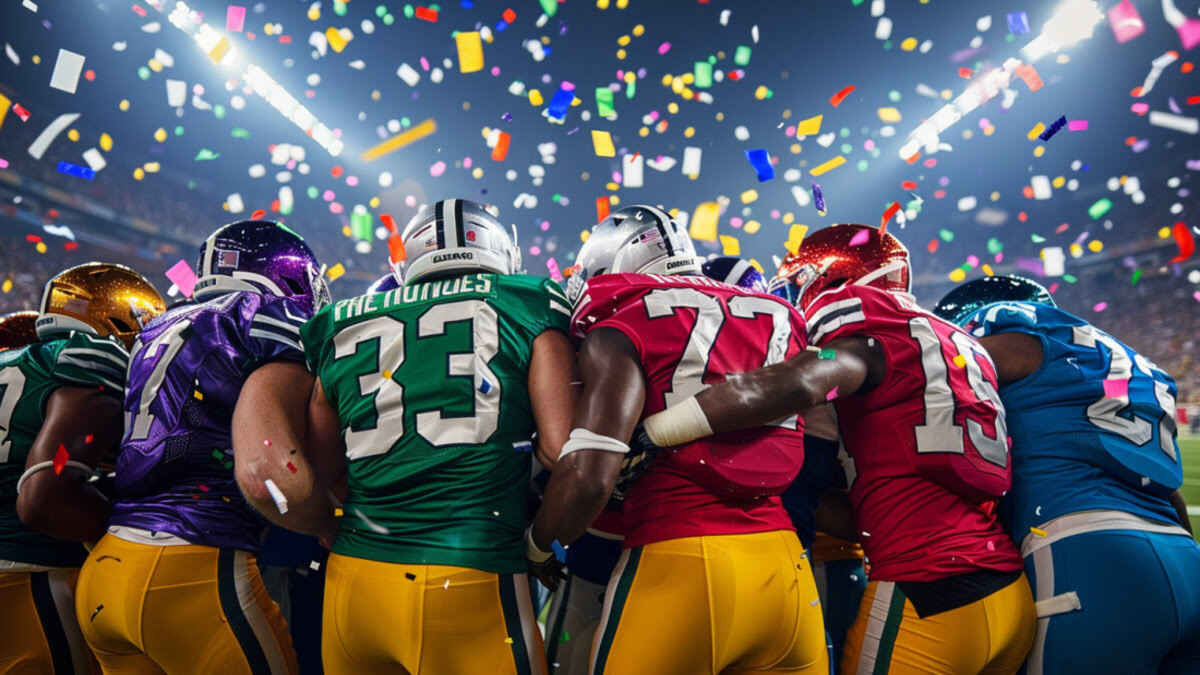
With AI’s growing capabilities in pattern recognition, data analysis, and predictive modeling, it has become a unique tool for forecasting outcomes in various fields, including the highly unpredictable world of sports.
For this article, we’ve tasked an advanced AI system to undertake an intriguing challenge – to predict the winners of the Super Bowl from the year 2025 to 2099.
How Did AI Predict Super Bowl Winners?
The predictions generated by the AI are based on an extensive dataset that includes team performance statistics, player health, historical trends, and even emerging talents from college football leagues. While the idea of predicting outcomes over such a long span might seem like a stretch, the exercise provides a fascinating glimpse into the potential future of sports analytics.
What follows below are some interesting highlights from the AI’s predictions, showcasing potential dynasties, surprising underdog victories, and shifts in team dominance through the decades. It’s a journey through a hypothetical future of the NFL, driven by data and imagined through the lens of artificial intelligence.
Note: Maybe break up the table by decades
Super Bowl Winners 2025 – 2099 According to AI
2025 – 2040
| 2025 | Kansas City Chiefs |
| 2026 | Dallas Cowboys |
| 2027 | San Francisco 49ers |
| 2028 | Miami Dolphins |
| 2029 | New England Patriots |
| 2030 | Baltimore Ravens |
| 2031 | Green Bay Packers |
| 2032 | Las Vegas Raiders |
| 2033 | Philadelphia Eagles |
| 2034 | Chicago Bears |
| 2035 | New York Giants |
| 2036 | Seattle Seahawks |
| 2037 | Denver Broncos |
| 2038 | Atlanta Falcons |
| 2039 | Buffalo Bills |
| 2040 | Los Angeles Rams |
2041 – 2060
| 2041 | Cleveland Browns |
| 2042 | Houston Texans |
| 2043 | New Orleans Saints |
| 2044 | Arizona Cardinals |
| 2045 | Pittsburgh Steelers |
| 2046 | Tennessee Titans |
| 2047 | Minnesota Vikings |
| 2048 | Carolina Panthers |
| 2049 | Indianapolis Colts |
| 2050 | Jacksonville Jaguars |
| 2051 | Detroit Lions |
| 2052 | Cincinnati Bengals |
| 2053 | New York Jets |
| 2054 | Tampa Bay Buccaneers |
| 2055 | Washington Commanders |
| 2056 | Los Angeles Chargers |
| 2057 | Baltimore Ravens |
| 2058 | Green Bay Packers |
| 2059 | Kansas City Chiefs |
| 2060 | Dallas Cowboys |
2061 – 2080
| 2061 | San Francisco 49ers |
| 2062 | Miami Dolphins |
| 2063 | New England Patriots |
| 2064 | Baltimore Ravens |
| 2065 | Green Bay Packers |
| 2066 | Las Vegas Raiders |
| 2067 | Philadelphia Eagles |
| 2068 | Chicago Bears |
| 2069 | New York Giants |
| 2070 | Seattle Seahawks |
| 2071 | Denver Broncos |
| 2072 | Atlanta Falcons |
| 2073 | Buffalo Bills |
| 2074 | Los Angeles Rams |
| 2075 | Cleveland Browns |
| 2076 | Houston Texans |
| 2077 | New Orleans Saints |
| 2078 | Arizona Cardinals |
| 2079 | Pittsburgh Steelers |
| 2080 | Tennessee Titans |
2081 – 2099
| 2081 | Minnesota Vikings |
| 2082 | Carolina Panthers |
| 2083 | Indianapolis Colts |
| 2084 | Jacksonville Jaguars |
| 2085 | Detroit Lions |
| 2086 | Cincinnati Bengals |
| 2087 | New York Jets |
| 2088 | Tampa Bay Buccaneers |
| 2089 | Washington Commanders |
| 2090 | Los Angeles Chargers |
| 2091 | Baltimore Ravens |
| 2092 | Green Bay Packers |
| 2093 | Kansas City Chiefs |
| 2094 | Dallas Cowboys |
| 2095 | San Francisco 49ers |
| 2096 | Miami Dolphins |
| 2097 | New England Patriots |
| 2098 | Baltimore Ravens |
| 2099 | Green Bay Packers |
Some Interesting Predictions!
The AI’s predictions for the Super Bowl winners from 2025 through 2099 certainly make for some intriguing speculation. Throughout this exercise, AI has highlighted several teams that, historically, might not have been the first picks for a championship title.
Clubs like the Jacksonville Jaguars and Detroit Lions, which have often been underdogs in the league, appeared as predicted winners in future Super Bowls. This suggests a potential shift in the dynamics of the NFL, where every team might see its day in the sun, regardless of their past records.
Among the surprising AI predictions were the Cleveland Browns and the Arizona Cardinals winning Super Bowls. These teams have had their struggles and have often been overlooked as serious contenders, which makes their mention in the AI predictions a delightful twist for their fans and sports analysts alike.
As we look forward to these future games, it’s important to remember the unpredictable nature of sports; anything can happen on any given Sunday. Whether you’re a fan of a perennial powerhouse or a team with fewer championships, these predictions offer hope and excitement that any team could rise to the occasion.
We hope you find these forecasts intriguing and maybe even a bit inspiring as we continue to enjoy the seasons ahead. May the results bring joy and maybe a little bit of friendly rivalry to your Super Bowl parties!

AI for Entertainment
Springfield Reimagined: AI Recreates The Simpsons

In a combination of nostalgia and AI, an innovative project has recently unveiled an AI-generated reimagination of the beloved TV series “The Simpsons.”
Utilizing advanced AI tools, this digital art showcase breathes new life into the iconic characters of Springfield, offering fans a novel perspective of what these familiar faces might look like if they stepped out into the real world.
The Simpsons Brought to Life with AI
Leveraging AI technology, YouTuber demonflyingfox reinterprets “The Simpsons” by blending the well-known cartoon aesthetic with a hint of surreal photorealism. The outcome is a series of striking images and a captivating video that redefines how Homer, Marge, Bart, Lisa, and other key characters are visually represented.
In the AI-generated Simpsons video, AI meticulously captures the essence of each character, portraying them in a style that straddles their animated origins and a more realistic depiction. This artistic endeavor not only underscores the capabilities of AI in creative domains but also ignites a discussion about the evolving interplay between technology and conventional media.
The Artistic Process Behind the AI Simpsons
There are various ways to turn animated TV series into life using AI. One popular option is feeding MidJourney with hundreds of original frames from the series, along with detailed character descriptions and traits.
The AI processes this information and outputs images that maintain the core attributes of the characters but with a fresh, artistic twist. This showcases the remarkable potential of AI not just to create art from scratch but to reimagine and reinterpret cultural icons in innovative ways.
How to Use AI to Recreate Your Favorite Animated TV Series
After watching how realistic the YouTuber demonflyingfox turned The Simpsons into reality, you may be tempted to do the same for fun.
To begin recreating your favorite anime with AI, you will first need to choose the right AI art tool. Platforms like MidJourney, DeepArt, and Artbreeder are popular among enthusiasts for their ability to adapt and apply complex artistic styles. These tools can generate images from textual descriptions or modify existing images to resemble the anime style.
Step-by-Step Guide to Recreating Anime with AI:
- Select an AI Art Platform: Choose a platform that supports the level of customization you need. Some platforms might be better suited for generating images from scratch, while others might excel at style transfer.
- Gather Your Reference Material: Collect images, character descriptions, and scene layouts from your favorite animated series. The more detailed your references, the better the AI can understand and recreate the intended style.
- Fine-Tune the Details: Use the platform’s tools to adjust colors, outlines, and textures. Many AI art platforms offer sliders and other controls to fine-tune the generated images to match the animated aesthetic.
- Iterate: AI-generated art often requires several iterations to perfect. Don’t hesitate to tweak your inputs and run the AI multiple times to achieve the best result.
- Enhance and Edit: Once you have a satisfactory image, you might want to use traditional editing software to make final adjustments or add personal touches.
Legal and Ethical Considerations
While exploring the capabilities of AI in anime art, it’s crucial to consider the legal and ethical implications, especially regarding copyright laws and the original creators’ rights. Always ensure that your use of AI-generated art respects the intellectual property of the original creators and is used in a manner compliant with copyright laws.
Using AI to Recreate the Simpsons and More
The AI reimagining of “The Simpsons” is more than a technological feat; it represents a profound integration of technology into the fabric of pop culture. As AI continues to evolve, such projects not only entertain and inspire but also provoke reflection on the future of art, creativity, and the enduring impact of cherished characters.
Recreating your anime series using AI opens up a world of possibilities for both fan art and professional animation. By combining AI technology with your creativity, you can explore new artistic dimensions and bring your beloved characters and stories to life in ways previously unimaginable.
As this technology continues to evolve, it will promise even more tools and techniques for artists and fans to experiment with, further blurring the lines between traditional and innovative digital creation. Whether you’re a highly experienced artist or a newcomer to digital art, the journey of recreating anime with AI is accessible, rewarding, and entertaining, inviting you to reimagine the boundaries of your favorite narratives.
AI for Entertainment
Artificial Intelligence in Video Games
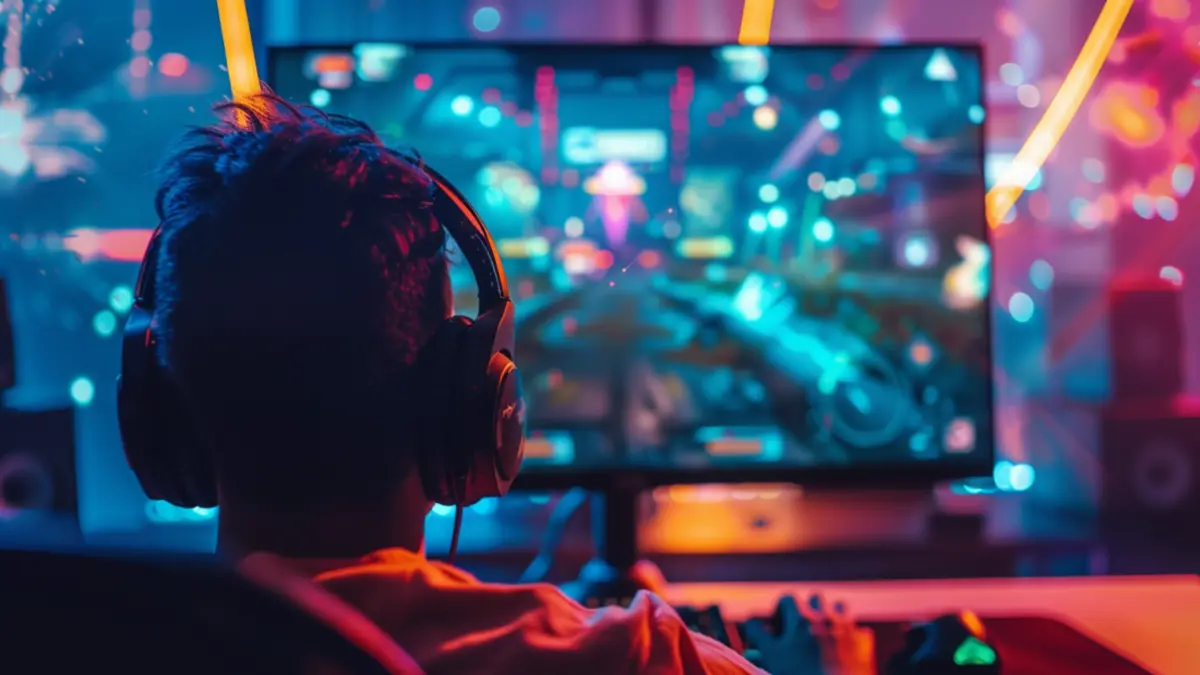
Artificial Intelligence (AI) is revolutionizing the gaming industry, making video games more engaging and immersive. AI in games isn’t just about making characters smarter; it’s about enhancing the overall experience for the player, making environments interactive, and characters more believable. This technology allows games to adapt to your play style, making every gaming session unique.
Beyond just gameplay, AI also improves game development. Developers use AI to test games, simulate player reactions, and fine-tune the balance of the game before it hits the market. This means better quality games for players, and fewer bugs and frustrations.
Understanding AI’s role in games helps players appreciate the complexity and innovation behind their favorite titles. From puzzles that adapt to your skill level to enemies that learn from your tactics, AI is at the heart of modern gaming.
The Evolution of AI in Gaming
The journey of AI in video games began with simple programmed behaviors in the early arcade games. Initially, AI was used to control opponents with basic move sets. Games like ‘Pac-Man’ and ‘Pong’ had rudimentary AI that was predictable but challenging for that time.
As technology progressed, so did AI in games. The introduction of more sophisticated AI brought more realistic and unpredictable NPC behavior. Games like ‘The Elder Scrolls’ and ‘Far Cry’ series introduced enemies that could strategize and react to player actions in real-time, adding depth to gameplay.
Today, AI is not only used for character behavior but also influences game design and player interaction. With advancements in machine learning, AI can now learn from player behavior, tailor challenges, and even create content on the go to enhance engagement.
How AI Enhances Gameplay and Realism
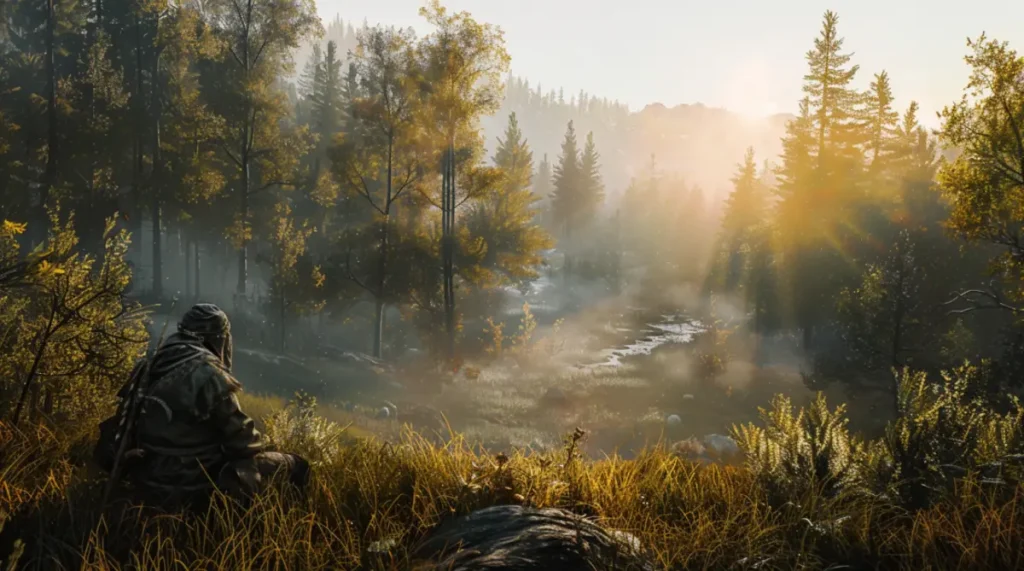
AI-driven characters bring games to life. They can react to player actions, communicate with each other, and even exhibit emotions. This level of interaction adds a layer of realism and immersion that was previously unattainable. For instance, in games like ‘The Last of Us,’ AI controls allies and enemies alike, creating dynamic interactions that feel deeply personal and realistic.
Moreover, AI enhances gameplay through environmental adaptability. In games like ‘Minecraft,’ the environment itself can change based on player actions, thanks to AI algorithms. This dynamic environment creation ensures that no two playthroughs are the same, offering a unique experience each time.
AI also plays a crucial role in creating realistic game physics, which is vital for the authenticity of simulations in racing and sports games. These advancements allow for more precise and varied gameplay, pushing the boundaries of what games can offer.
AI-Driven Game Design: Tools and Techniques
Game developers utilize various AI tools and techniques to create complex game mechanics and narratives. AI algorithms can generate vast worlds, intricate storylines, and detailed quests without human input. This procedural generation is used in games like ‘No Man’s Sky,’ where AI creates billions of unique planets to explore.
AI tools also help in designing balanced game levels. By simulating countless playthroughs, AI can identify potential issues with game balance and suggest adjustments. This backend AI application is crucial for developing challenging yet fair games.
In addition, AI is used in testing and quality assurance. It can rapidly play through levels, testing for bugs and glitches more efficiently than human testers. This not only speeds up the development process but also ensures a smoother and more stable game upon release.
AI and Player Interaction: From NPCs to Adaptive Challenges
AI transforms how players interact with the game world. NPCs powered by AI have their motivations, goals, and reactions, making them more than just obstacles or aids to the player. These characters can form relationships with the player based on interactions, influencing the game’s narrative and outcomes.
Adaptive challenges are another area where AI impacts player interaction. Based on real-time analysis of player performance, AI can adjust the difficulty of tasks and enemies. This ensures that the game remains challenging but not overwhelming, providing a tailored experience to both novice and experienced players.
Furthermore, AI can detect player preferences and learning styles, modifying gameplay elements to suit individual needs. This personalization makes games more accessible and enjoyable, catering to a wider audience with diverse gaming skills.
Machine Learning and Procedural Content Generation in Games
Machine learning, a subset of AI, is particularly influential in video games. It allows for the creation of learning algorithms that evolve based on player data. This technology is behind enemy AI that adapts to combat tactics, or game narratives that branch based on choices made by the player.
Procedural content generation, powered by AI, enables the creation of endless landscapes and complex ecosystems without extensive developer input. This method not only saves time during game development but also ensures that each player’s experience is unique. Games like ‘Elite Dangerous’ utilize this technology to generate a galaxy rich in diverse planets and species.
Machine learning also aids in creating more realistic AI behaviors. By analyzing data from thousands of player interactions, AI models are trained to exhibit behaviors that are incredibly lifelike and unpredictable, enhancing the challenge and realism of games## The Role of AI in Multiplayer Gaming
In multiplayer environments, AI plays a critical role in ensuring a fair and enjoyable experience for all players. It is responsible for matchmaking, where it analyzes player skills and statistics to create balanced teams. This helps in making competitive play fairer and more engaging for participants of all skill levels.
AI also manages in-game events and dynamics in multiplayer settings, ensuring that the game adapts to the actions of multiple players simultaneously. For instance, in large scale multiplayer games like “Fortnite,” AI monitors the overall progress of the game and can dynamically alter game conditions to maintain balance and interest.
Furthermore, AI in multiplayer games can fill the gaps when there aren’t enough players available. It can control characters known as “bots,” which simulate human players to ensure that games can start and run smoothly without long waiting times for players to join.
Ethical Considerations and AI in Gaming
One major concern is the use of AI to monitor player behavior, which raises privacy issues. While this can help in creating a safer gaming environment by identifying and penalizing poor behavior, it also poses questions about surveillance and data security.
Another ethical concern is the development of AI that might deceive or manipulate players. In games that involve in-game purchases, AI can be used to influence buying decisions, which might not always be in the best interest of the player. Developers need to navigate these challenges carefully to maintain trust and ensure fair play.
Additionally, there’s the risk of AI creating addictive behaviors in players. Games are designed to be engaging, but when AI is too good at keeping players engaged, it can lead to excessive play, highlighting the need for responsible AI use that considers the well-being of players.
The Future of AI in Video Games
Looking ahead, AI is set to become even more integral to the gaming industry. One exciting prospect is the use of AI to create fully interactive and responsive game worlds that can evolve without developer input. This could lead to games that continue to grow and change indefinitely, providing endless new experiences for players.
AI is also expected to improve in understanding and interpreting player emotions and reactions, leading to games that can adjust themselves in real-time to provide the most compelling experience for each individual player based on their emotional state.
Another future development could be the integration of AI with virtual reality (VR), leading to more immersive and realistic VR gaming experiences that are highly responsive and adaptive to player actions and emotions.
The potential of AI in gaming is vast, with the possibility of creating more personalized, engaging, and inclusive gaming experiences. As AI technology continues to develop, the landscape of video gaming will undoubtedly evolve, offering new and exciting possibilities that we can only begin to imagine.
The integration of AI into video games is transforming not just how games are played and experienced, but also how they are developed and maintained. As this technology progresses, it will continue to blur the lines between virtual gaming worlds and reality, creating experiences that are more immersive than ever before.
AI Is Revolutionizing the Gaming Industry
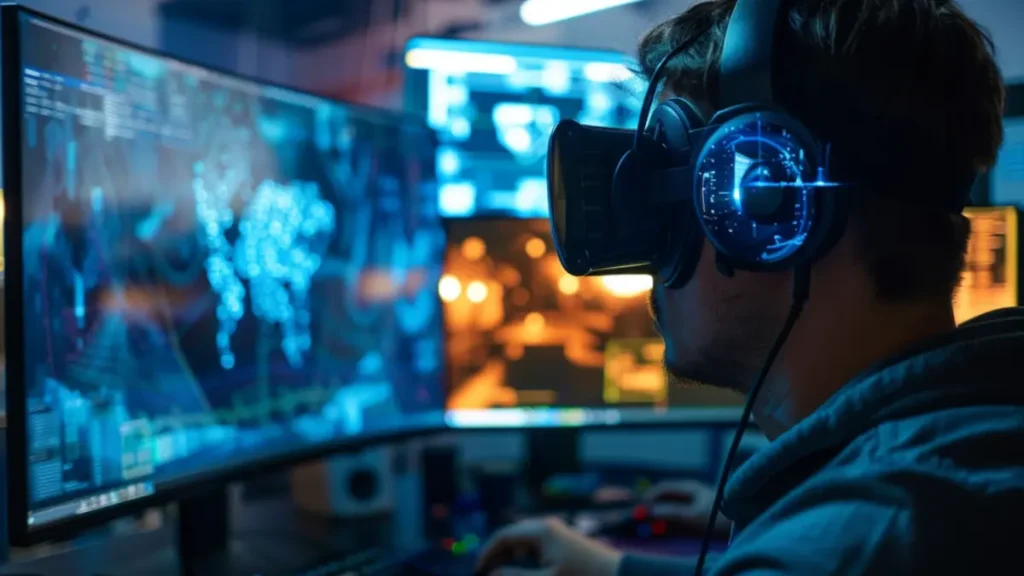
Artificial Intelligence is reshaping the landscape of video gaming, making it more dynamic, immersive, and personalized than ever before. From enhancing character behaviors and game environments to optimizing multiplayer experiences and addressing ethical considerations, AI’s role in gaming is profound and multifaceted.
As AI gets better and better everyday, the integration of AI promises to further innovate gameplay, create adaptive game worlds, and improve player interactions. The ongoing evolution of AI technologies will continue to push the boundaries of what video games can offer, ensuring that the gaming experiences of tomorrow are even more engaging and lifelike.
-
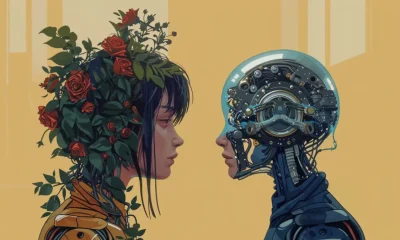
 AI Guides2 years ago
AI Guides2 years agoGPT-4 vs. GPT-4o: Key Differences
-
Uncategorized5 months ago
10 Best AI Productivity Tools for 2025 [Tested]
-
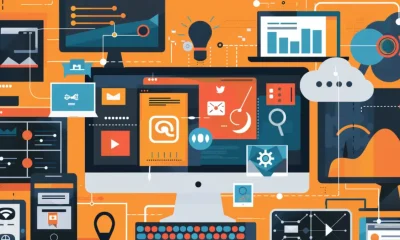
 AI Tool Reviews2 years ago
AI Tool Reviews2 years ago10 Best Free AI Websites
-

 AI Guides2 years ago
AI Guides2 years agoHistory of AI – From the 1950s to Present
-

 AI for Investment2 years ago
AI for Investment2 years agoHow to Use AI for Stock Trading
-

 AI Guides2 years ago
AI Guides2 years agoCurrent Limitations of Artificial Intelligence
-

 AI Tool Reviews2 years ago
AI Tool Reviews2 years ago10 Best AI Song Generators (Including Free Options)
-

 AI Tool Reviews2 years ago
AI Tool Reviews2 years agoPerplexity AI Review: Better Than ChatGPT?

